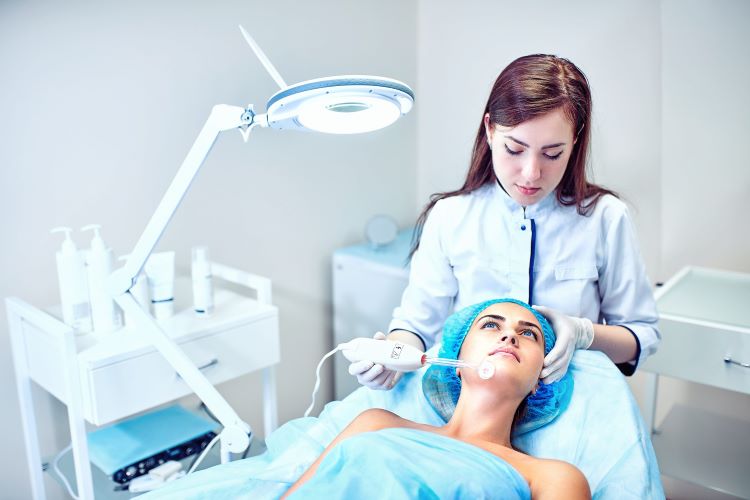Dr Monica Kapoor
In today’s digital age, social media platforms have revolutionised the way we connect, communicate, and consume information. One area greatly impacted by this phenomenon is the field of cosmetology. With the rise of influencers and online communities dedicated to beauty, social media has become a powerful force shaping the latest trends in the world of cosmetics and personal grooming. This article explores the profound influence of social media on cosmetology trends and how it has transformed the industry.
Rise of beauty influencers
Social media platforms like Instagram, YouTube, and TikTok have given birth to a new breed of influencers known as beauty gurus. These individuals, often armed with extensive knowledge and skills in cosmetology, showcase their talents, product recommendations, and tutorials to their vast online following. By sharing their expertise and personal experiences, beauty influencers have become trusted authorities, significantly impacting the choices and preferences of their followers.
Instant access to global trends
In the pre-social media era, cosmetology trends were primarily influenced by fashion magazines and celebrity styles. However, the digital landscape has democratised access to beauty trends, allowing users to stay updated on the latest techniques and products from around the world. With a few taps on their screens, individuals can now follow international influencers, watch live beauty demonstrations, and discover new trends emerging from different cultures and communities.
Product reviews and recommendations
One of the most significant ways social media has influenced cosmetology trends is through product reviews and recommendations. Beauty influencers often collaborate with cosmetic brands, receiving and reviewing their products for their audience. These honest evaluations can make or break a product’s reputation and sales. Consumers now rely heavily on these recommendations, seeking validation from their favorite influencers before making a purchase. As a result, brands are compelled to produce high-quality products that align with the demands and expectations of social media-savvy consumers.
Power of viral challenges
Social media platforms thrive on user-generated content, including viral challenges that quickly gain traction and popularity. Cosmetology-related challenges, such as the “no-makeup” challenge or the “full-face using only one brand” challenge, have swept across various platforms, prompting individuals to experiment with different looks and techniques. These challenges create a sense of community and foster engagement among users while driving the adoption of specific beauty trends.
Instant feedback loop
Unlike traditional forms of media, social media provides an instantaneous feedback loop. Cosmetology professionals and enthusiasts can share their work, ask for opinions, and receive immediate feedback from their followers. This feedback loop enables rapid experimentation, as individuals can refine their techniques based on real-time responses. It also fosters a sense of inclusivity, encouraging individuals of all backgrounds and skill levels to participate and contribute to the evolving cosmetology trends.
Social media has undeniably transformed the landscape of cosmetology by offering a global platform for beauty influencers, providing instant access to trends and techniques, influencing product choices, and fostering a vibrant community. As the influence of social media continues to grow, it is crucial for professionals in the cosmetology industry to adapt and leverage these digital platforms to stay relevant and cater to the evolving demands of consumers. With the power to shape trends and redefine beauty standards, social media has become an integral part of the modern cosmetology world.
Dr Monica Kapoor is Celebrity Cosmetologist and Director,
Flawless Cosmetic Clinic & ILACAD Institute
